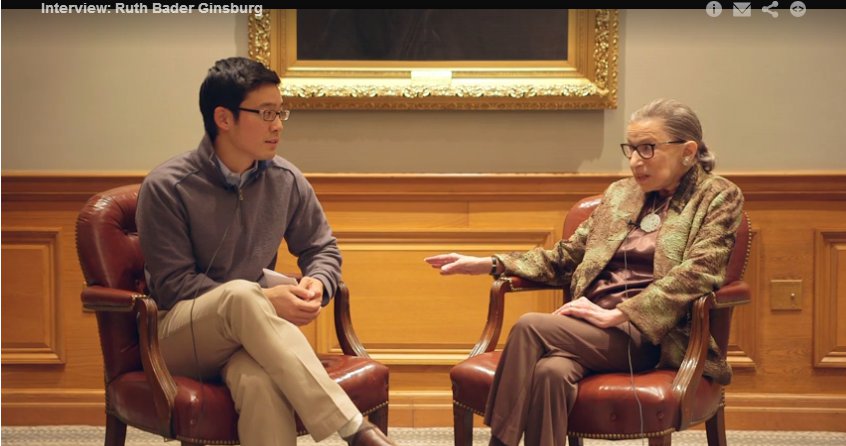|
What Is Coaching Anyway?
Coaching sessions are about an hour or more on the phone or in person and involve extensive dialogue. The purpose is not to offer therapy, relaxation or coping mechanisms but rather to find a pathway that works specifically for you, so you can apply it every day to your life. Language is important because a word or phrase that triggers understanding in one person may confuse someone else. There is no script, just a mutual connection. Fit is important. One of my favorite quotes that echoes this philosophy is: "The teacher and the taught create the teaching." As a coach, my goal is to try another tack when there is confusion and to continue deepening the exploration when there is understanding. Being A Client Most of my clients have a strong desire to learn and grow. They want to be better versions of themselves. The focus is often on work: being a better leader, managing time, communicating effectively. We also cover other areas such as work/life balance, having a stronger sense of purpose and meaning, being a better listener, partner, and even parent. There's a notable commitment to self-understanding. This is ultimately a path to self-awareness. How can it be any other way? Only you know the path towards the goals you identified. I serve as a brief companion on that long journey of self-reflection. A Peek Into A Coaching Session Below is a sample of how a session could go: Client: can you give me ways to be calm and focused when I'm at work? Coach: tell me about a time when you were completely relaxed and comfortable just where you were. Client: it was at my best friend's house when we were talking about our kids. Coach: what exactly was comfortable about it? Client: there was a natural ease to the conversation where I didn't have to struggle to be myself. I wasn't wearing a mask, the way I feel like I do at work. Coach: why a mask? Do you not feel like yourself at work? Client: in a way. I feel out of place, like I have to try to be someone else. Coach: where does that thought that you have to be someone else come from? Client: doubt, I guess. Because I feel like I don't know what to do to take care of the situation. Coach: why don't you feel doubt when you're at your friend's house? Client: because I'm completely accepted in that environment. Coach: Okay. So what can you do to create acceptance of yourself at work? Client: I suppose I can express myself truly. Coach: just as you are? Client: yeah I suppose. (Pause) Client: and then I'll be at ease because I'm myself. Coach: now let's talk about ways you can remind yourself of that when you're at work... The conversation continues until we figure out triggers that work in different environments, such as at work, home, or in stressful situations. We work together to identify habits that enable self-awareness and situational awareness. This is only 10 minutes out of a 60 to 90 minute conversation, where we discover tactics, techniques, and methods that make sense for the client. Figuring out a path specific to them holds greater value because in fact they themselves discovered it. An Opportunity To Reflect We rarely give ourselves the opportunity to have these conversations about self-growth, self-improvement and self-reflection. We might have done this when we were younger, perhaps in college, but our busy lives don't allow us this luxury often, if ever. That is the purpose of coaching. Typically, my clients start with a commitment of 3 months so they can experiment and see results, but clients have stayed on for years because they see continual growth. Sometimes, my clients take breaks for 3-6 months. I hear from them if and when their path has wavered or when they are looking to grow along a different path, or perhaps deepen their knowledge of themselves. Everyone needs a place for reflection, whether it's your daily journal, your religious institution, your community or a good friend you talk to regularly. Reflection makes you better, not tomorrow but today. Being A Coach I have had various roles in corporations - executive, consultant, employee, entrepreneur - and I continue to work in healthcare to improve the system of care for patients. I live the life my clients live, which tunes me into the daily struggles we all face at work or otherwise. Coaching is more than a role for me though. I revel in it. I cherish and respect this process. It's what I think about naturally. It's who I am, and what moves me. I get energy from every phone call and meeting. Hard questions need attention and time, which is the point of coaching. We get that time to step back and evaluate, and build strategically towards the future. What comes out of it may completely change how you do things, or just tweak it a little bit, depending on what's right for you. Regardless, you learn something about yourself through the process. Gaining in-sight that is invaluable to how you see and interact with the world. -- What would you work on if you had a coach? If any of this appeals to you, click here to learn more about my work, or simply email me. I always start with a free 30-minute session to see if there's a fit. A Simple Habit To Stay Level-Headed
Take 5 deep breaths during transitions in your day. What are transitions? Every time you go from home to work, work to home, lunch to work, work to lunch, meeting to office, meeting to meeting, and other moments when you shift from one mindset to another represents a transition. In fact, an even simpler way to define transitions is when you're "on the go" or when you feel like you are. Our go-go-go mentality rarely lets our attentive mind take a break. Rather, it's wired to look for even more things to pay attention to, like checking email, social media, news etc. And most of us operate on the belief that we're more productive because we complete tasks on the go. That may be true, but how do you feel at the end of the day? How energized or exhausted are you? How much caffeine do you need to maintain that level of alertness? And how much of a crash do you feel later? Mindfulness is about balanced productivity Taking those 5 deep breaths during transitions is a simple start.
Mindfulness, especially when it's used in the work setting, can have phenomenal benefits:
An Online Course on Developing Mindful Habits I'm teaching a 4-week online course in mid-January on Developing Mindful Habits. You'll learn mindful habits that will actually keep you calm, cool, and collected. The early bird discount ends tomorrow so take a look today. What's Behind Saying "No"?
Recently, people have been talking about how to say "no" to potential connections like coffee invites or phone intros so you can stay focused on what you're doing. Saying "no" to possibilities - for work, collaboration, friendship, etc. - may limit our growth, but our busy calendars limit our time, leaving little choice but to filter options. "No" may be a symptom of a greater underlying problem - a lack of boundaries. Defining What's "Enough" We all need boundaries, in terms of defining what is "enough" for us. This goes beyond meetings to our work too. Going past the point of "enough" can be personally detrimental. Do you know when you have worked enough and need to stop? Do you know when your calendar is getting too filled and you need to stop adding to it? Knowing when to stop gives you the opportunity for a break, for alone time or an outing with someone. Now, saying "no" is less a reaction and more a conscious response. On the other hand, when you don't define what's enough for you, the prefix, "over", gets used a lot. You feel:
The list goes on. If you don't know your boundary, it gets defined for you, and you only learn of it after the fact. Then, you have to work a little harder to fix it. How To Set Boundaries Defining boundaries starts with saying "yes" to yourself. Look at your calendar and note how many items represent what you really want to do versus what you're doing for others (employer, business partner, colleague, etc.). Take an upcoming week and for each day, count the items that are for "yourself" and items that are for "others". On those days when items for "others" are greater than items for "yourself", either remove one of the "others" items or add a "yourself" item. This simple action allows you to define personal balance very specifically, prioritizing your interests and how you want to most want to spend your time. It's your time after all, even if you're renting it to an employer or client. How are you going to enjoy it? Balance = Energy Now, if someone invites you for a coffee or phone intro, instead of saying "no" outright because you're busy, you can make an intentional decision based on how you want to balance your day or week. You'll feel more energized either way, because you're planning by saying "yes" to the things you care about. Sometimes that's work you want to focus on and other times it's new connections you hope to pursue. Acting from a place of personal balance is additive, because regret, guilt, or "should" don't play into your decision. Saying "no" or "yes" is no longer an opportunity cost, it's just an opportunity. -- What boundaries have you set for yourself? Have you defined "enough" for your work, meetings, personal time? Share your thoughts with me over email. (These emails only come to me and are never shared with others. In fact, they often help me come up with ideas for future posts I can share with a broader audience.) When I'm having a really busy day, my basic bodily needs go out the window.
I don't go to the bathroom as often as my bladder wants me to, I ignore eating for long stretches of time, I don't get out of my chair for hours on end, I don't get outside to breathe the fresh air, I don't touch my water bottle though it's right in front of me, I don't even close my eyes because I am staring at the computer so intently. The after effects of this behavior vary from minor irritability to an all out crash where I need to pee, eat, drink, and take a nap as quickly as I can, in any order possible, or even at the same time. How do you avoid crashing during a busy day? Prioritize one aspect of your life. As a starting point, pick from the categories below:
Keep in mind one of my favorite Stephen Covey quotes: "The key is not to prioritize what's on your schedule, but to schedule your priorities." Body For example, if you prioritize your body, it takes care of the majority of bodily functions you've been ignoring.
Mind Now, if you prioritize your mind, you can avoid it from shutting down.
Heart If you prioritize your heart, you keep kindness, friends, and family at the top of the list.
Spirit If you prioritize your spirit, you may seek meaning, purpose, or fulfillment every day.
Make your own "no matter what" list For you, some of the bullets above may be more appropriate in one category over another. It's up to you what you choose to prioritize. You can define your "no matter what" list however you like, but you need to define it in a way that makes sure that it's a priority in your life. The hope is your work, hobbies, friends, family are all part of the body, mind, heart, spirit balance, but that isn't always the case. Situations--money, obligations, needs--don't always allow for it. But you can work up to it slowly. Eventually, by prioritizing all four categories, you achieve a balance that feels right for yourself, even if not your situation. What do you prioritize in your life right now? How do you make it a habit? What is your definition of balance? Share your thoughts with me over email. These emails only come to me and are never shared with others. In fact, they often help me come up with ideas for future posts. Stop.
Don't do whatever you were going to do next. Close your eyes and center yourself. Breathe easily. Stay like that for as long as you want. Forget time. Don't worry, you won't be here long. There will be a point when your mind will call you out of this short reverie. That's when you'll want to do the next thing. That's when you'll truly be ready to do it. When you want to. Not because it's the next thing to do. Not because you were looking for something to occupy your time. Not out of a nervous habit to keep going. Wait for originality, creativity, ingenuity to strike you. Claude Debussy said: "music is the space between the notes." Stopping allows you to create the space for your music to enter. Otherwise, you just keep playing without taking a breath. Try this now. Collect yourself before you do the next thing, so you act as a whole person. Not partially attentive, but fully there. Based on the number of direct emails I got on my last post, I'm closing comments and asking that you email me your thoughts. I've found the dialog to be very rich this way, and hope you do too. "Sometimes I sits and thinks, and sometimes I just sits." --Satchel Paige Self-Reflection Made Easy
The most long-lasting and powerful way to develop deep personal insights is through self-reflection, finding quiet time you can set aside to think or just be for a few minutes. This is easier said than done in our fast-paced, information-heavy, overly-busy modern world. Why would you spend valuable time doing nothing? Here are a few reasons:
Down time is incredible, but difficult for many to incorporate into their lives. And though I'm being light-hearted, I'm very serious about how it can improve your day-to-day life. This is why I want to make it easier to practice regularly. Meditation, Journaling & Group Dialog Over the last few months, I've been testing what I'm calling the "Insight Club." Nine motivated and interested people have helped me to develop a forum for self-reflection, including meditation, journaling, and group dialog. Starting today, I'm opening it up to everyone. Go here to join. The Insight Club includes:
This is entirely FREE! Self-reflection can't be bought, but it doesn't come cheap in terms of effort. It requires a little work on your part. You have to show up! I started this to make it easier for you to start. So you have a place to go. I'm inviting you into my personal practice. It's completely up to you how much you put into it. You can join any time and partake in any part of the Club, though the benefits of being "all in" will open up parts of yourself you didn't know were there, and you will discover creativity, productivity, and resilience. Try it for 2 weeks. Sign up here and you'll receive a "How To" guide with dial-in information and details about the journaling to get you started. What participants have gotten out of the Insight Club "The hum on the phone is audible, I can feel everyone meditating with me!" "I have a better perspective on others and myself. I journal every so often during the week, but feel like I'm more aware of my blind spots. "I don't know what's blocking me sometimes, and this gives me clarity." Now it's your turn: What's stopping you from taking 5-10 minutes out of your day to sit or think? If you are too busy, then in fact, are you too busy? How can you develop a routine or a toolkit to reflect on your day? Learn more about the Insight Club and try it out to see if it works for you. At the least, you'll learn something you can practice on your own. Ruth Bader Ginsburg on work/life balance In the first 2 minutes of this video, Ruth Bader Ginsburg, also known as the Boss by her colleagues, tells stories of how her young daughter helped her get a better sense of what matters. The video is part of a bigger article on issues of women's rights, paternity leave, and "having it all," a theme that comes up several times. Below is a short excerpt. It’s easy to assume that celebrated figures like the Boss possess superhuman levels of discipline. But an insight one gains working at a place like the Supreme Court is that we all face similar constraints on our time, energy, and intellectual bandwidth. During my year at the Court, I sought to understand how the Boss managed to successfully balance her family and career. Most good advice is simple and boring
We often read about what is good for us, nod our heads, and go back to what we usually do. Why is that? The advice seems banal, almost cliche, and we shrug our shoulders, telling ourselves that it's obvious. "Take breaks." Duh. It's all a cover-up for the real reason why we shake it off and move on. Change is difficult for most people, and though we acknowledge the value of good advice, it still seems like a shift in the regular rhythm of our lives. Until we contextualize the advice into our day-to-day, and get a feel for it, we don't truly realize its benefits. When we read it, we only know it to be true in abstract, not in reality. This is where trial and error come in. What's great about "take breaks" is how easy it is to implement. You can take action on it right away. Then, you can decide whether it's worth your time. You also come out of the experience with more nuance about how you define a break, when you take it, whether you take it, and what you listen for when you hear others talk about it. Instead of leaping to "yeah, that's easy," or "no, that's hard," try it out for one full week. Run an experiment to test your assumptions. If you stick to it, then you can evaluate how you feel afterwards, and if you can't even do a week, there's no real loss anyway. It's worth a try. What sound advice have you gotten lately that you're avoiding? Why are you not following through on it? Can you try it for a few weeks to see if it suits you? I'm excited to hear your thoughts, so please share them in the Comments section or via email, and please pass this on to someone who'd be interested! |
Coaching Consulting
|









 RSS Feed
RSS Feed